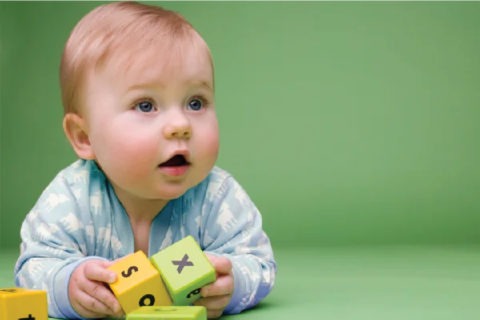
Setting Limits & Boundaries with Children
September 26, 2022
Child Friendly Chores & Responsibilities
December 1, 2022Sometimes it is easy and obvious to see when kids feel good about themselves, and when they don’t. The word we often use to describe the idea of one feeling good about themselves is ‘Self-Esteem’.
A child with a high self-esteem tends to feel loved and accepted, think good and regard themselves highly, feel proud of what they are capable of, feel confident, and believe in themselves and what they’re capable of. On the other hand, children with a low sense of self-esteem are overly self-critical and hard on themselves, they tend to feel like they’re not as good as the other kids, think of all the times they’ve failed rather than the times they have succeeded, they tend to lack self-confidence, and doubt themselves in areas where they would otherwise succeed and excel.

But why does self-esteem matter? Children who feel comfortable with themselves and confident about themselves tend to try new experiences and are more likely to give it their best in all that they do. They tend to feel proud of what they are capable of. Self-Esteem helps children cope and deal with mistakes and losses, it helps them get back up and try again. As a result, having self-esteem helps children perform better at school, at home, and with peers and friends. On the other hand, children with a low self-esteem tend to feel unsure of themselves and lack self-confidence. They may tend to feel like they won’t be accepted by their friends and peers. They may let others treat them poorly and have a difficult time standing up for themselves. In contrast to those children with self-esteem, those with low self-esteem tend to find it difficult to cope with mistakes and losses, and due to this they may not reach their full potential.
A child’s self-esteem tends to develop in their babyhood years. It is not something that develops overnight; it’s a slow process that is molded by their parents, family, friends, peers, the environment, situations, and challenges they face. But it all begins from a child feeling safe, secure, loved, and accepted. It starts when a child gets positive attention and loving care. As your child goes from a toddler to young children, they’re able to do most things on their own; this helps them feel independent and good about themselves, where they can use and showcase their skills. This leads to and helps in growing their self-esteem and confidence. When your child tries something, give them a smile, and show them that you’re proud of them.
 .
.
As kids grow, so can their self-esteem. Any time a child tries their hand at something new, that is a great opportunity to help their self-esteem and confidence get a boost and grow! This can happen when the child:
- Makes progress and take strides towards achieving goals.
- Learns new things at school.
- Gets along with and makes new friends.
- Picks up new skills like art, music, dance, sculpting, cooking, baking, etc.
- Gives it their all at any activity or task.
- Partakes in and practices their favorite activities and hobbies.
- Gets praise from their parents, friends, teachers, peers, and relatives for their hard work.
- Feels loved, understood, and accepted.
- Excels at academics, and being acknowledged for it.
When children have self-esteem and confidence they tend to try and learn new hobbies and excel. They also feel confident, capable, and accepted. Each child is unique and different in their own way; to some self-esteem and confidence comes naturally, and in the case of the others, they have to put in some effort to build it up. A child with low self-esteem can have it raised. Here are a few things that the parent can do to help raise and boost their child’s self-confidence:
- Actively take part in helping your child learn a new hobby. At every stage in their childhood, there are new things for a child to learn. For example – help your child learn to ride a bike, or help them bake, or read! Get books for babies, picture books for babies. Read together. It’s one of the best bonding activities, and great at boosting the child’s self-image.
- When teaching your children new things, make sure to help them out at first by showing them how to do it. After which you can let them do the task, even if they are making mistakes. Just make sure your child gets the opportunity to learn and try, and make sure to let them know that you’re proud of them. The key is to not make new challenges too easy or too difficult!
- We’ve mentioned that you should praise your child, but make sure to do it wisely. Of course, it’s good to praise your child; it lets your child know that you’re proud of them, but it can also backfire!
Pay attention to your child, what their strengths are, what they enjoy and what they excel in, and make sure your child has the opportunity to develop and nurture these strengths. Self-esteem grows when children get to see that what they do really matters and makes a difference. Helping and other acts of kindness helps build and nurture self-esteem, amongst other good feelings.
Learning Time has some fantastic stuff for early learning. Ask for a free demo. Have a look at what’s trending in early childhood education.




